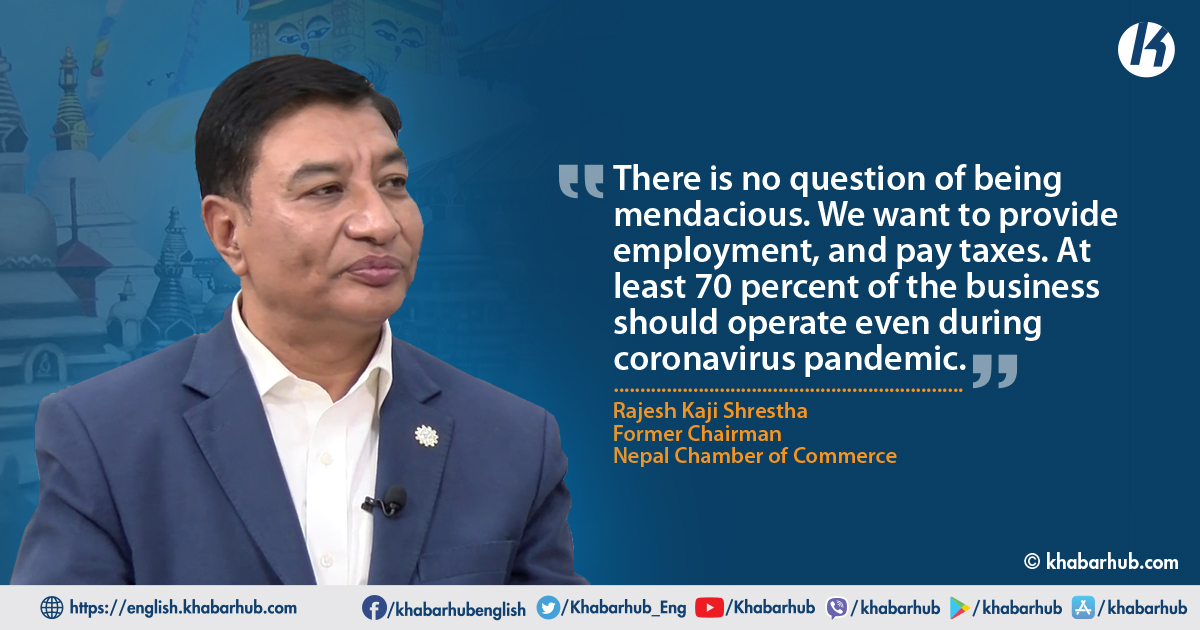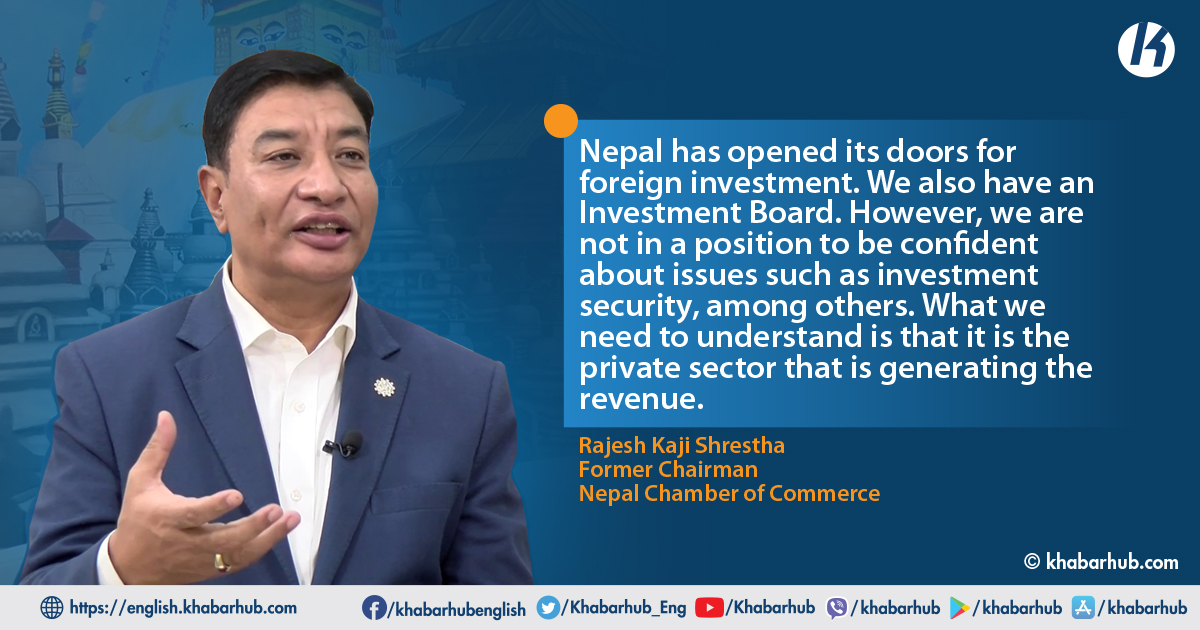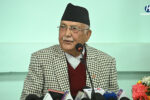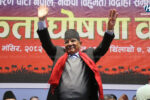The private sector invests in businesses, provides employment and increases revenue. However, the coronavirus pandemic has struck the industrial sector hard.
Entrepreneurs complain that the government did not play its guardianship role to boost up the morale of the private sector that has been supporting the government in many ways.
The government has introduced two budgets after the pandemic. After the formation of the new government recently, the government is likely to announce the monetary policy for the current fiscal year.
Shrestha served as the President of the Nepal Chamber of Commerce during which NCC restructured its organizations as per the federal structure, expanding it to the provincial level.
He also expanded the organization at the international level signing various bilateral agreements with chambers from different parts of the world.
He, during his tenure, took the NCC to a new height and supported the government in the development of the national economy by promoting and protecting the industries both in the private as well as public sectors.
In this context, Kabita Shreshta from Khabarhub spoke with former President of Nepal Chamber of Commerce Rajesh Kaji Shrestha. Excerpts:
What challenges does the private sector face due to COVID-19-induced lockdown and prohibitory orders?
Honestly speaking, the lockdown and prohibitory orders have only piled up challenges. Every sector is affected. The situation is such that it is hard to find those who are happy with the lockdown.
I have heard some people say that it was good for food and medicine importers. They could have been happy when the price went up, otherwise, no one is happy.
How much did the government’s budget help in the economic recovery after COVID-19?
The private sector had developed some expectations from the government after observing initiatives in foreign countries. It expected some relief or recovery packages.
The pandemic hit the private sector very hard. After adopting federalism, the operation cost of the government has gone up. The government feels there has not been enough money for relief packages.
The government failed to feel the suffering of the private sector. It seems the government has forgotten that the private sector paid taxes and has also helped in generating employment.
What should the government do to boost the morale of the private sector?
It is pretty simple. We, the entrepreneurs, want to be able to pay revenue and provide employment through business.
We are not for making profits all the time. We are wrongly portrayed as the ones who are concerned about the profit alone. We know the pandemic. We feel the suffering. We do not urge the government to help us cent percent.
We do not expect our government to support us as done by the governments in Europe. We wish we could take the trade up to 70 percent.
We handed over a memorandum to the then Finance Minister Yuvaraj Khatiwada on March 19 last year after the government enforced lockdown on March 24.
When we look at ASEAN, we find that in Sri Lanka, the government offered 2 percent and the banks 4 percent consession in interest rates. That was a substantive relief to entrepreneurs.

Unfortunately, the private sector could not see much relief from the government here. India had also suffered from the coronavirus pandemic, yet, India reduced taxes from 25 percent to 20 percent.
There should be a 5 percent waiver on import tax. The customs duty has gone up from 30 percent to 40 percent due to which goods are arriving illegally. Let’s reduce that to 25 percent. Let’s impose zero to 5 percent import tax on raw materials.
With the reduction in customs duty, it will be possible to import goods legally instead of taking to the black market. It automatically increases revenue collection.
Speaking of VAT, it was said that it would be reduced to 10 percent in 1998/99, but in the meantime, after the Maoist insurgency started in the country, citing the country needs more money, VAT was increased to 13 percent.
Later, the Maoist movement got settled through peaceful measures. However, the government forgot about the VAT it promised to decrease. Rather than thinking about the affordability of customers/consumers, the government thought only about the revenue.
VAT should be brought down to 10 percent. Reducing it from 90 percent to 13 percent and maintaining at 10 percent for the private sector will increase both employment and revenue. But the government did not heed it. Instead, it promised to offer discounts on many items. This is also welcome.
The government has talked about levying one percent tax on the hotel sector. However, the hotel sector is not open yet. It does not matter how much tax is levied.
The government has set a target of collecting Rs 145 billion more revenue than the previous fiscal year. That doesn’t mean it has given concessions on revenue, but the target has been raised.
Some countries in the world have given full tax exemption to the sectors completely smashed by the lockdown. Some have paid for the work themselves.
Unfortunately, here the government has merely increased the revenue target by Rs 145 billion. The burden is sure to come to the private sector again.
What are the policy issues the government should take for the upliftment of the private sector?
I don’t want to comment on this. We have been telling the government quite often. It’s high time for the government to go for action. The government is concerned only about increasing revenue for the time being.
The government policy should address the issues like how to increase revenue and employment by making entrepreneurs happy, and how to run business in a transparent manner. That is all.
What is the attitude of society towards the private sector?
First of all, you journalists have to change. You have to be fair. Undue eulogy and unfair criticism are both harmful. If the private sector does anything pleasant to them, they eulogize a lot.
Similarly, if they fail to understand the way the private sector is working, they present it very negatively. This brings the morale of the private sector down.
Rather than profit, the private sector is working to protect the agency or to sustain the business.
I still say, ask from within, which private sector is benefiting and if anyone is happy, tell me. The private sector is often depicted negatively and derogatively taken synonymous to the black market and stockpiling.
It’s due to the private sector’s commitment and persistent efforts that the people did not suffer a shortage of goods and supplies even during the coronavirus pandemic days.
Despite the fact that they were equally under the pandemic threat, the entrepreneurs kept on making arrangements for the goods and services. They reached India and other places to load or unload the trucks from India. We had been bringing whatever we need at that time. We have been bringing goods for decades.
Had there been a shortage of goods and supplies, perhaps there could have been more crimes in the country. There would have been loots and fights everywhere. That was not done by the government.
A few days back, it came to the media that it took more than a year for the goods to come from China. Just imagine the loss the entrepreneurs had to bear when the vehicles were stuck at the borders.
How much was melted, how much was moldy, who will pay for the loss? The private sector has been working at risk.
Even now the traffic jam disrupts transportation. On the one hand, the goods get stuck on the way, on the other hand, the department of commerce raids on the goods and say the date is expired. The tax office keeps troubling as well. Entrepreneurs have been facing nuisance everywhere.
What do you think are the initiatives to increase and restore investment?
We also have an Investment Board. I am also a director. There is still no certainty on issues like investment security, single service points. First of all, everyone’s opinion needs to be positive. We have to think positively that the revenue comes after investors work. The contribution of the private sector has to be recognized.
When we go abroad and look at investment boards like ours, we see them providing promising facilities. We are not able to provide similar facilities and responses to them.
In case of investment, if it is delayed for a month due to our reasons, the project may go to another country. We, the private sector and investors regard customers as gods. The government should also create a positive and trusting environment for the private sector and investors.
Nowadays, there is no such thing as cheating and looting as before. If you look on the internet, you know everything. Not all entrepreneurs are there to earn by hook or crook. They are entrepreneurs; they are running their businesses by taking loans from banks or mortgaging their property. They should not be regarded as cheats.
Together with the lifting of the prohibitory orders, unemployment is likely to take place. What should be the role of the private sector in reducing unemployment?
It is all up to the government, private sector and employers to arrange for the supply and demand. Initially, the employees were paid in the lockdown. Few people paid half the salary whereas others employed people alternatively and paid accordingly.

If the business grows, if the government looks after everything, we can offer employment. If the government boosts up the morale of entrepreneurs, employment will be generated by itself.
How do you see the relationship between the government and the private sector?
Nowadays it has become relatively easier. Most of the things can be done via cell phones. Principally, everything seems well but the implementation side is weak. In the unofficial meetings, the incumbent finance minister has also assured that he will look after the private sector.
No minister or prime minister has said anything negative, but the question is why business could not grow, investments could not come, employment could not grow.
How do you see the current stock market fluctuations?
I’m not involved in it. There are many ups and downs. You’d better ask it to the bankers and Nepal Rastra Bank.
What are the key issues the private sector wants to be included in the monetary policy?
While preparing the monetary policy last year, we had also made suggestions to the current governor. He was the deputy governor at the time. He also has the experience of working as the Chief Executive Director of the Investment Board.
Last year, I welcomed the fact that 80 percent of our suggestions were included in the monetary policy. Even now we have made suggestions.
Now I say, constantly monitor whether the policy brought in the monetary policy has been implemented or not. Monitoring matters including refinancing.
There is nothing else now. The private sector pays taxes, stays on the frontline but does not get vaccinated. There is a movement in Pokhara called No Vaccine No Tourism. The government had to vaccinate the private sector along with those on the frontline. That boosts morale. Whether through diplomatic initiatives or purchases, the vaccine should come immediately.
India has 65 percent of our trade. India had provided a lot of assistance during the earthquake, during the first phase of the coronavirus outbreak. Why not now? For India to be safe, Nepal must also be safe.
With the mere news that the vaccine is coming from China and the United States, morale has increased. The government body that looks after vaccinations had to act quickly. Law and order should not entangle things. The government should decide quickly and make decisions as per the need.









Comment